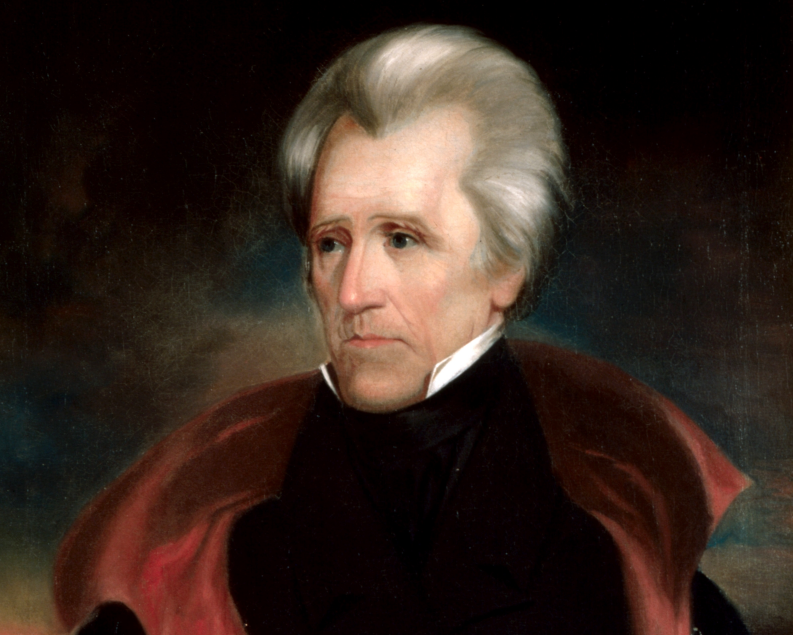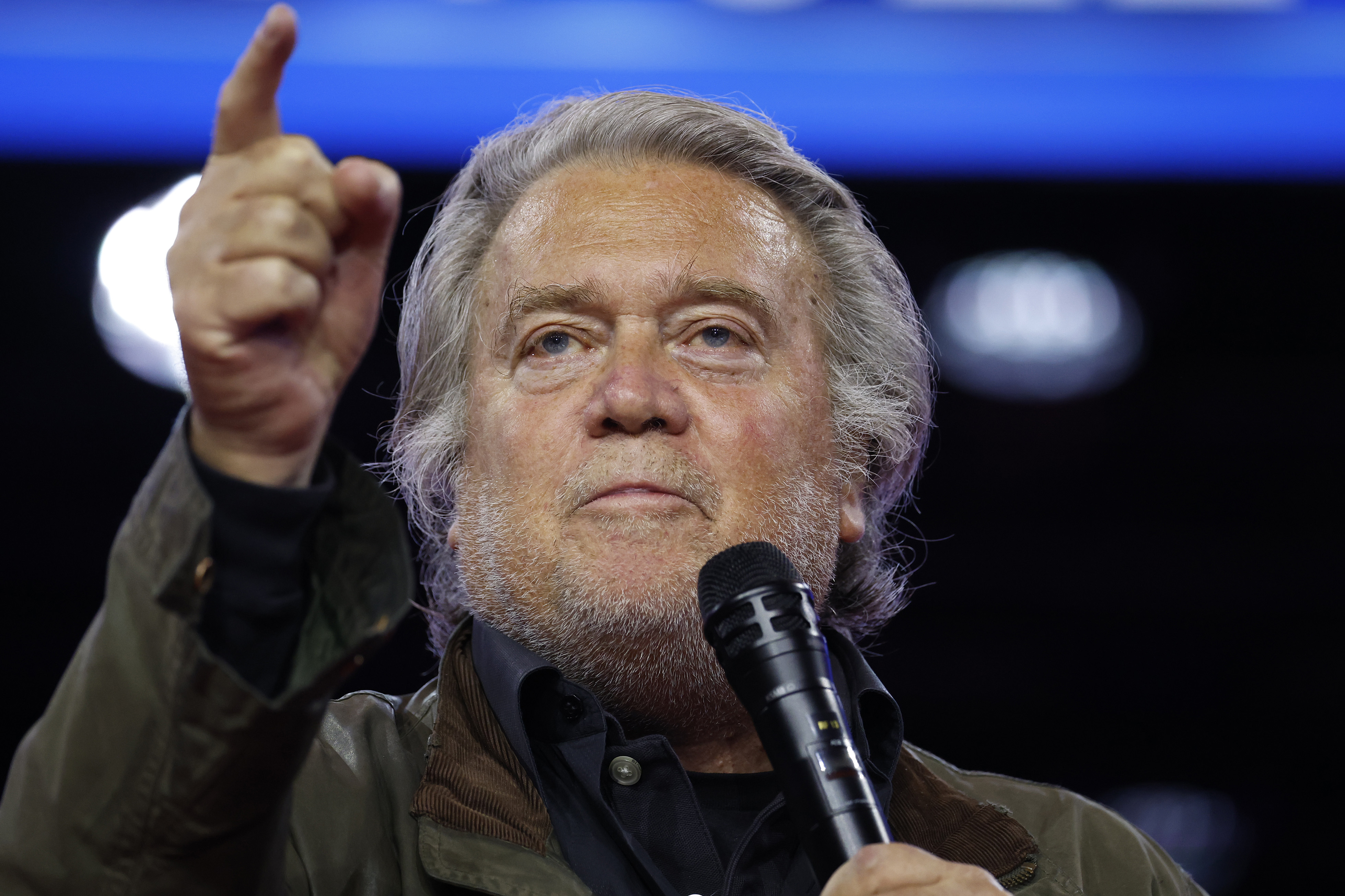
Andrew Jackson was a slaveholder, a populist and an emotionally volatile man who fought in as many as 100 duels during his lifetime.
Naturally, Donald Trump has great admiration for him.
In fact, Trump—despite his gaping and well-demonstrated ignorance of American history—has developed an unusual fixation with the seventh president. In January, Trump described Jackson as "an amazing figure in American history—very unique [in] so many ways" and hung a portrait of the early president in the Oval Office. And on Monday, during an interview with Salena Zito, a host on SiriusXM, Trump made some of his most mystifying historical proclamations to date: He claimed that Jackson might have been able to stop the Civil War. (Jackson died in 1845, a decade and a half before the war broke out.)
Here are the widely circulated comments, which would not likely pass muster in a fourth-grade classroom:
Here's Trump's full answer on "swashbuckler" Andrew Jackson and the Civil War: "Why could that one not have been worked out?" pic.twitter.com/Zb8OQaDqyq
— Edward-Isaac Dovere (@IsaacDovere) May 1, 2017
While these remarks are not at all historically sound, Trump's ongoing fixation with Jackson is telling. There are substantial parallels between the two men. Jackson, who served as president from 1829 until 1837, was a populist. In fact, Smithsonian's Harry Watson has noted, "it was the presidential campaigns of Andrew Jackson that made the populist style a major force in national politics."
Jackson, nicknamed "Old Hickory" during his war hero days, was heralded by his supporters as a champion of the common man. Like Trump, he was the anti-establishment candidate; he was hated and feared by political elites, who warned that he was too volatile or dictatorial. Like Trump, he was hostile to racial minorities: a slave owner who owned as many as 150 slaves and whose Indian removal policies resulted in mass death and have sometimes been likened to genocide. He favored expanded executive powers, and did not always get along with the courts. Jackson was personally wealthy, which posed a familiar contradiction between his own economic status and his political appeal to struggling voters. Unlike Trump, he earned his substantial fortune and was not born into wealth. His rural upbringing and military background also separate him from Trump. (Another big difference: Jackson won the presidency in 1828 in a popular landslide, while Trump lost the popular vote to Hillary Clinton.)
Related: Has any president ever been as despised in his hometown as Donald Trump?
Why does Trump like to compare himself to Jackson? Maybe because so many of his allies made a point of positioning Trump as a successor of Jackson, usually as a way of beefing up his populist credentials.
"Like Jackson's populism, we're going to build an entirely new political movement," White House chief strategist Stephen Bannon said in an interview shortly after Trump's victory. Newt Gingrich invoked Jackson's name way back in August, touting Trump's psychological capabilities by saying that he's "at least as reliable as Andrew Jackson." And here's Rudy Giuliani on election night: "This is like Andrew Jackson's victory. This is the people beating the establishment." (Trump surrogates don't tend to mention the ethnic cleansing stuff.)
Though he boasts constantly of his wealth (and favors a tax plan that would mostly aid the wealthy), Trump clearly likes to be thought of as a champion of the "forgotten man"—and comparing himself to Jackson gives him a historical antecedent that he probably finds flattering. It legitimizes his presidency. Jackson is on the $20 bill. Despite the more despicable aspects of his legacy, he remains reasonably popular among historians. (Though his popularity is sliding, and some are blaming Trump for that.)
The temperamental similarities between the two men are significant, though less commonly remarked upon. Andrew Jackson was known to be vengeful, violent and obsessed with his honor. He fought in dozens of duels and once killed a man who called him "a worthless scoundrel." (During one of these duels he was shot in the chest, yet carried on and killed his rival.) He was quoted as saying he had two regrets from his presidency: "that I have not shot Henry Clay or hanged John C. Calhoun." Trump is similarly unstable and obsessed with his enemies, though he generally prefers insulting people on Twitter to fighting duels. Maybe if Twitter was around in 1830 Jackson could have just done that instead of shooting people who pissed him off.
There is one more thing that Trump and Andrew Jackson have in common: Neither of them seem to know anything about the Civil War—Jackson, because he is dead, and Trump, because he is merely ignorant.
Uncommon Knowledge
Newsweek is committed to challenging conventional wisdom and finding connections in the search for common ground.
Newsweek is committed to challenging conventional wisdom and finding connections in the search for common ground.
About the writer
Zach Schonfeld is a senior writer for Newsweek, where he covers culture for the print magazine. Previously, he was an ... Read more
To read how Newsweek uses AI as a newsroom tool, Click here.





